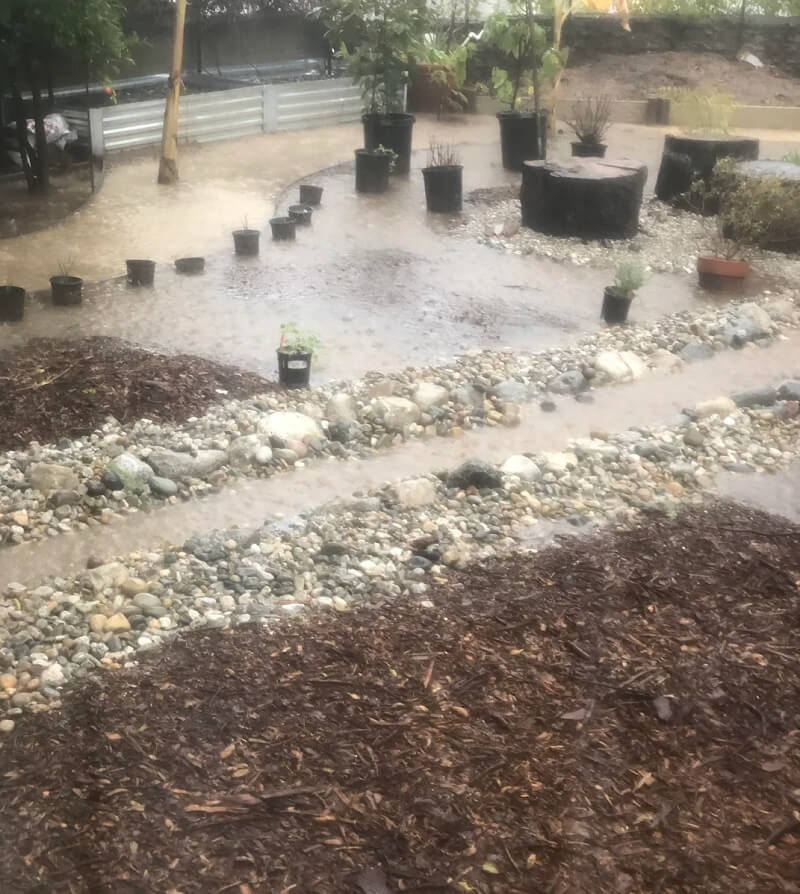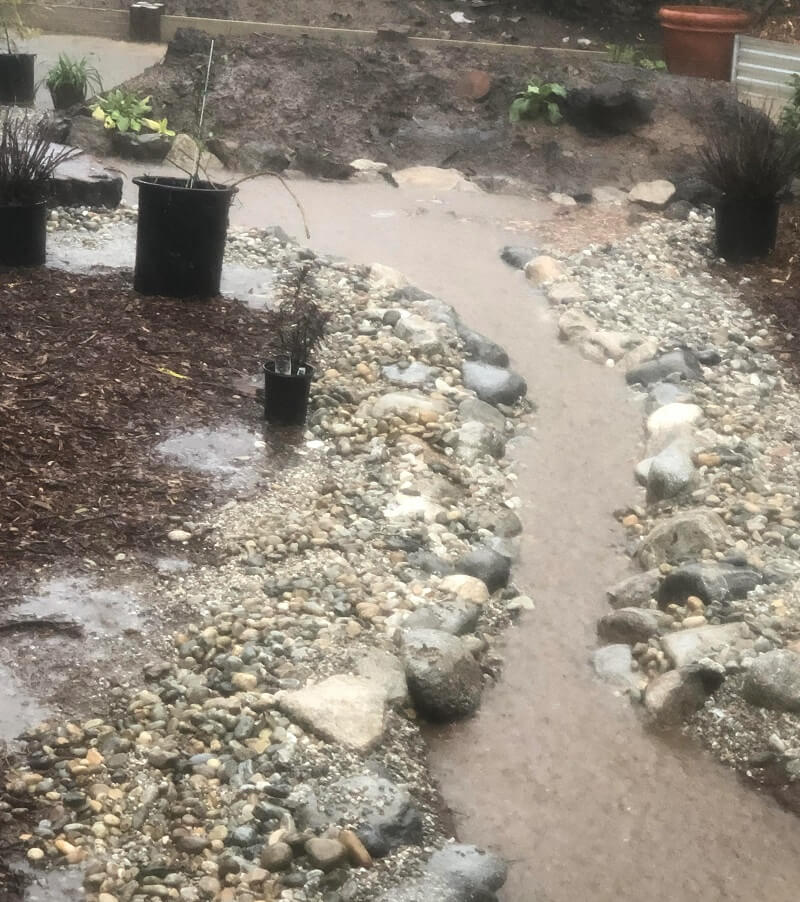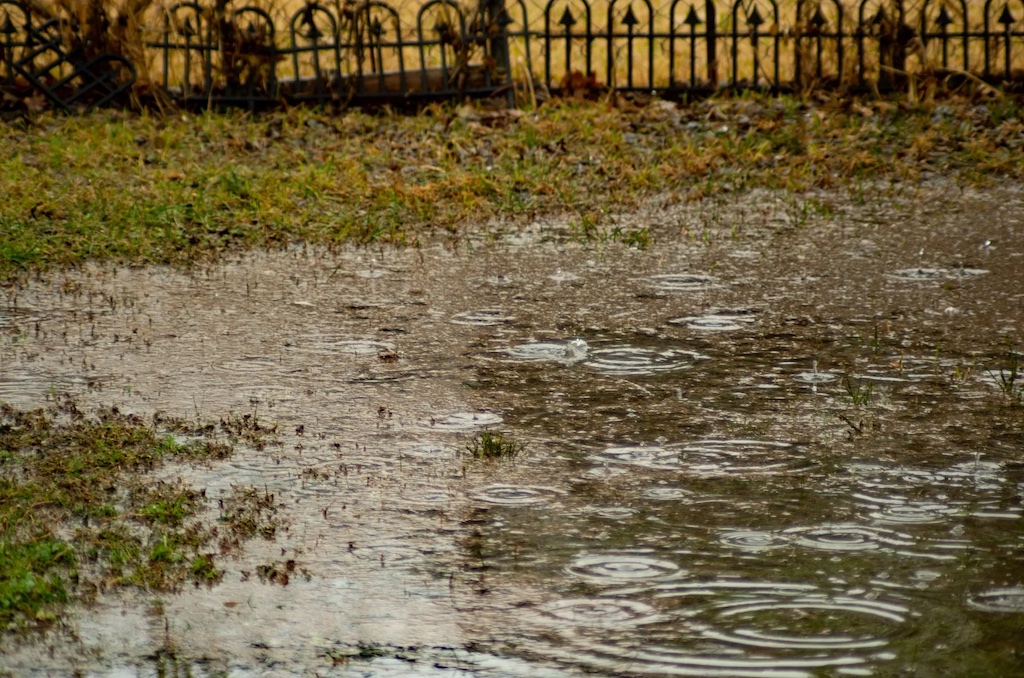A gardener in Southern California shared how they successfully collected and sank over 2,000 gallons of rainwater in their backyard.
According to the Redditor who shared the post, they received over 10 inches of rain in just two days. To prevent their yard from flooding, the gardener decided to build a rain garden using a swale to collect and transfer the excess water.
The images show how the gardener placed rocks and mulch throughout their yard so the water can gather in small pools where the ground is low.


Rain gardens are a beautiful and inexpensive way to treat runoff and prevent flooding. Most rain gardens are located in depressed areas and incorporate a variety of landscaping features, such as rocks and native plants, to help absorb the stormwater.
When installing a rain garden in your yard, it's also important to add deep-rooted plants to the area. The plants absorb the excess rainwater, preventing runoff and soil erosion.
Incorporating lawn replacement options, such as rain gardens and native plants, is not only a great way to save time and money on lawn maintenance but also a simple way to support the local ecosystem. Native plants attract key pollinators, including bees and butterflies, which promote the growth of your garden.
Watch now: Solar-powered boats from the Honnold Foundation are making a difference in the Amazon
Each year, you can save $275 on water, $50 on fertilizer, and $50 on pesticides and weed control when you switch to a native lawn.
The next step for the gardener is to plant low-spreading native creepers between and around the rocks.
"It still needs to be planted and built out," wrote the gardener. "Got the plants and you can see [them] in pots."
Redditors were in awe of the yard's transformation and ability to prevent flooding.
TCD Picks » Upway Spotlight

"Fantastic! This is a wonderful testament to what you have built there," wrote one user. "It is handling the water far beyond expectation. Very inspiring!"
"Pretty nice!! from my perspective (complete ignorance about gardening)," responded another Redditor.
Join our free newsletter for easy tips to save more, waste less, and help yourself while helping the planet.














